Beyond the Taj Mahal: 5 Key Experiences in Agra
What else is there to see and do in Agra, aside from the Taj Mahal? Nomad Margot shares her top experiences.
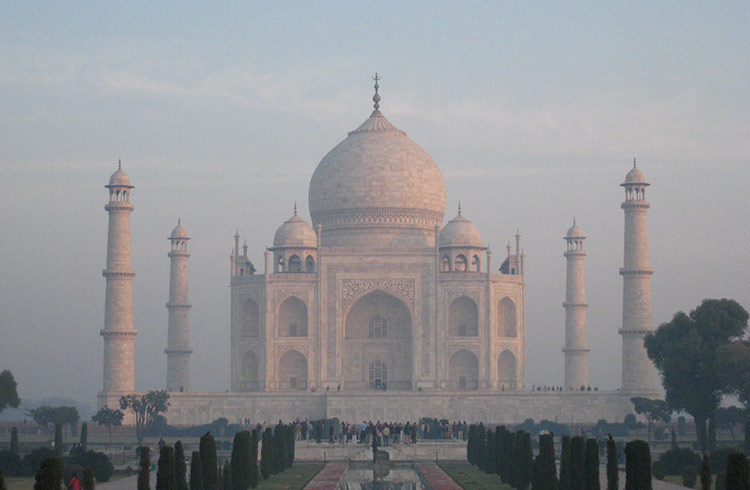 Photo © Margot Bigg
Photo © Margot Bigg
Although most visitors to Agra make a beeline to the city’s most famous monument – the iconic Taj Mahal – this historic city offers plenty more for travelers. But there's much more to see and do.
Taj Mahal
Although there are plenty of stunning historic sites in Agra, the Taj Mahal is what puts this city on the map.
Arguably the world’s finest work of Mughal architecture, this symmetrical mausoleum was commissioned by Emperor Shah Jahan as the final resting place for his beloved wife, Mumtaz Mahal, and was built over a period of 16 years.
While it’s a sight to behold, even from a distance, it’s worth getting up early to watch the sun rise over the beautiful, shimmering white-marble structure.
Agra Fort
Many travelers to Agra continue their visit at Agra Fort, a 16th century red sandstone behemoth that’s noteworthy for its blend of Central Asian and Indian architecture.
Must-sees within the complex include the Jehangir Mahal, a two-story complex that once served as a zenana, a sort of a mini palace for women of the court.
Other highlights include the intricate Khas Mahal, a former harem room with a central fountain that once spouted rosewater to keep the place smelling great.
Other impressive tombs
In the shadow of the Taj Mahal are many much smaller, but nonetheless impressive, tombs of various figures of the Mughal courts.
The two that stand out the most are the tomb of Itmad-ud-Dualah, usually referred to as “Baby Taj,” which actually predates its more famous counterpart by a couple of years.
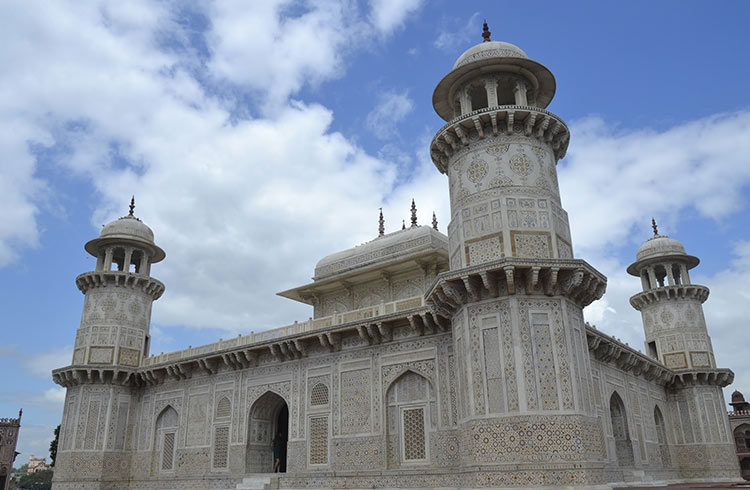
This gorgeous white-marble complex is covered with Arabesque-style pietra dura inlay and mosaics full of semi-precious minerals.
While not as eye-catching, the considerably less-visited Chini-ka-Rauza is worthwhile for its interior mosaic tilework and lush surrounding gardens.
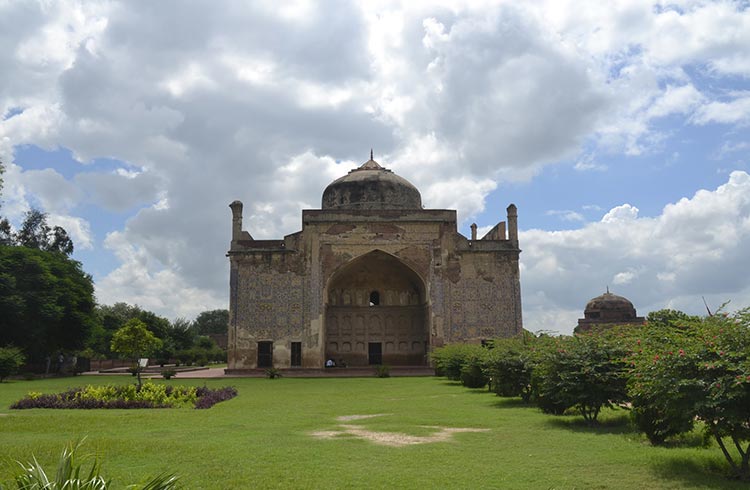
Gardens
Agra has some of the country’s finest examples of historic landscaping.
Ram Bagh is thought to be among the earliest Mughal gardens in the country, and uses a charbagh (or quadrilateral) layout, which originated in Iran and came to dominate in Mughal India.
The now-dry fountains were once filled with water channelled from the nearby Yamuna via waterwheels, and was once a top cool-down spot for Mughal elite.
Mehtab Bagh across the River Yamuna from the Taj is another popular garden, though today it’s a bit ramshackle, and the main reason to visit is to get great photos of the Taj with the river in the foreground.
If you’re actually after greenery, your best bet is the much newer Taj Nature Walk, a lush garden with tons of flora and avian life, plus some great Taj views.
Secrets of Agra
In search of the perfect Taj shot?
Skip Mehtab Bagh and continue a few hundred feet down the road, where there’s plenty of open (but muddy) riverbank space where you can shoot to your heart’s content from the water’s edge.
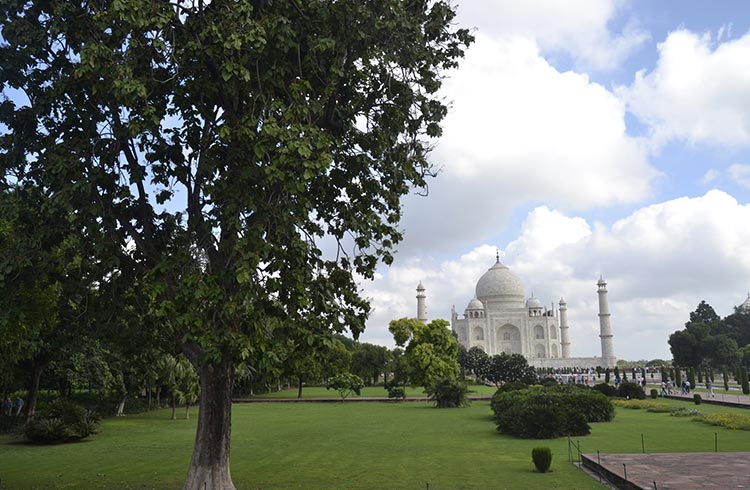
Related articles
Simple and flexible travel insurance
You can buy at home or while traveling, and claim online from anywhere in the world. With 150+ adventure activities covered and 24/7 emergency assistance.
Get a quote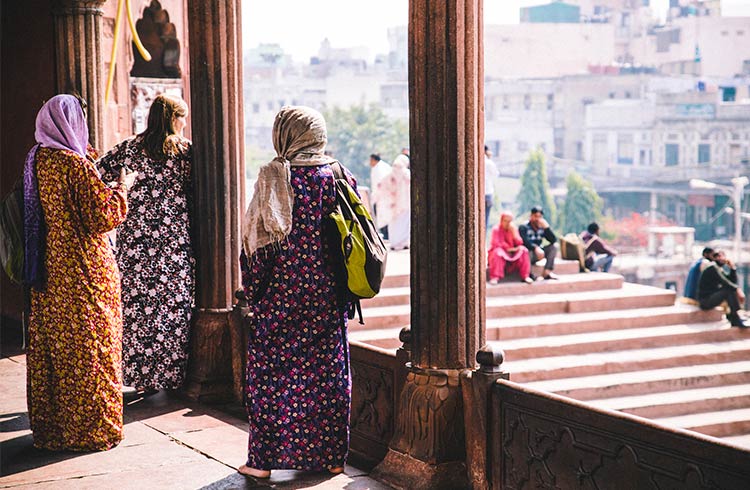
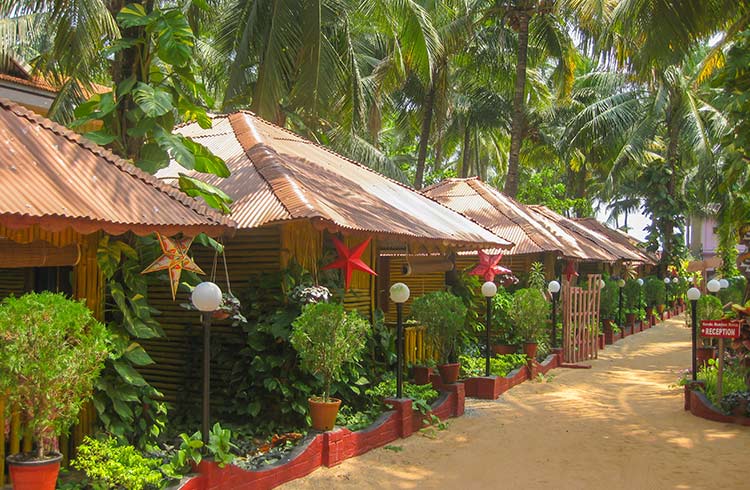

No Comments